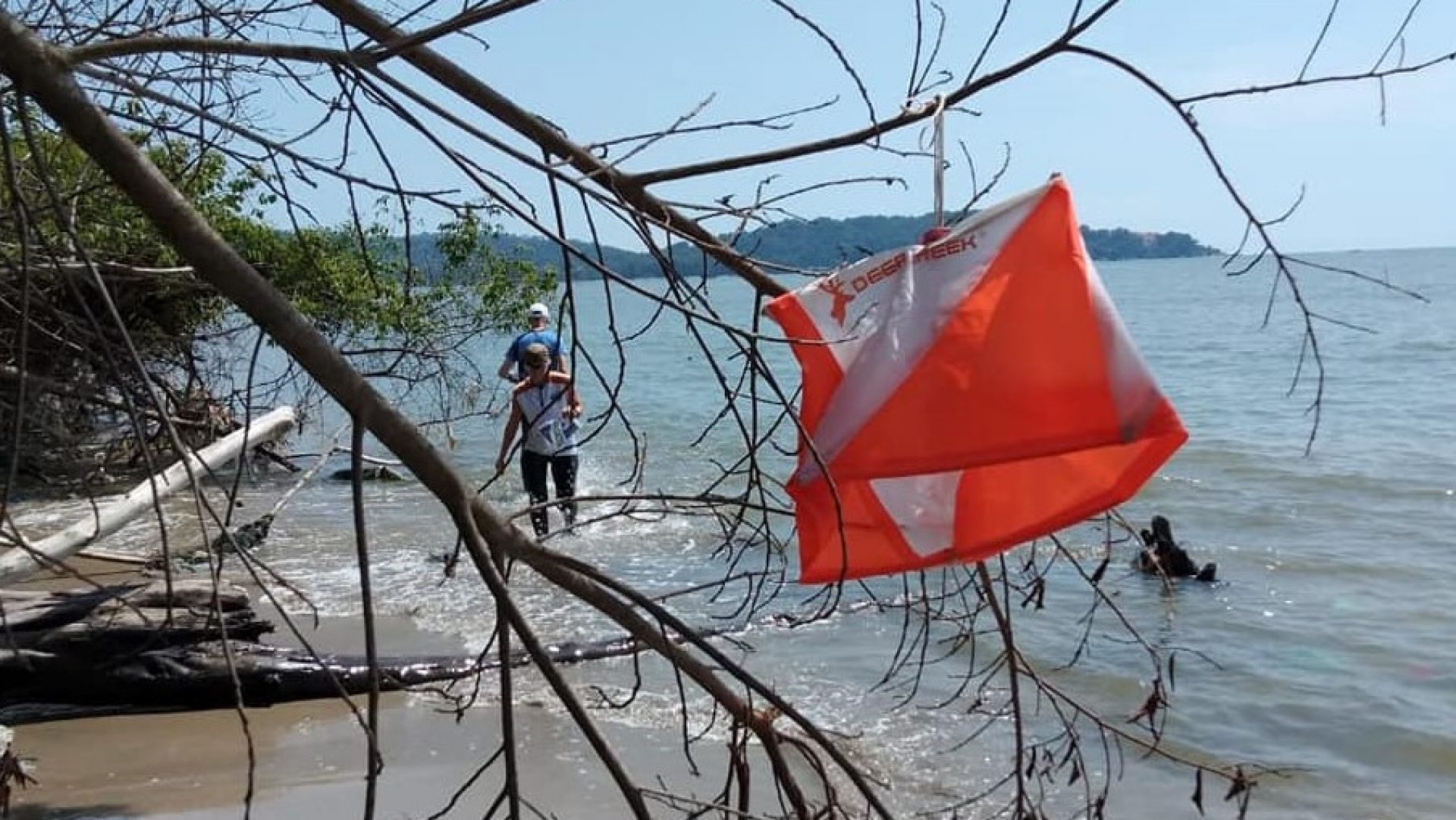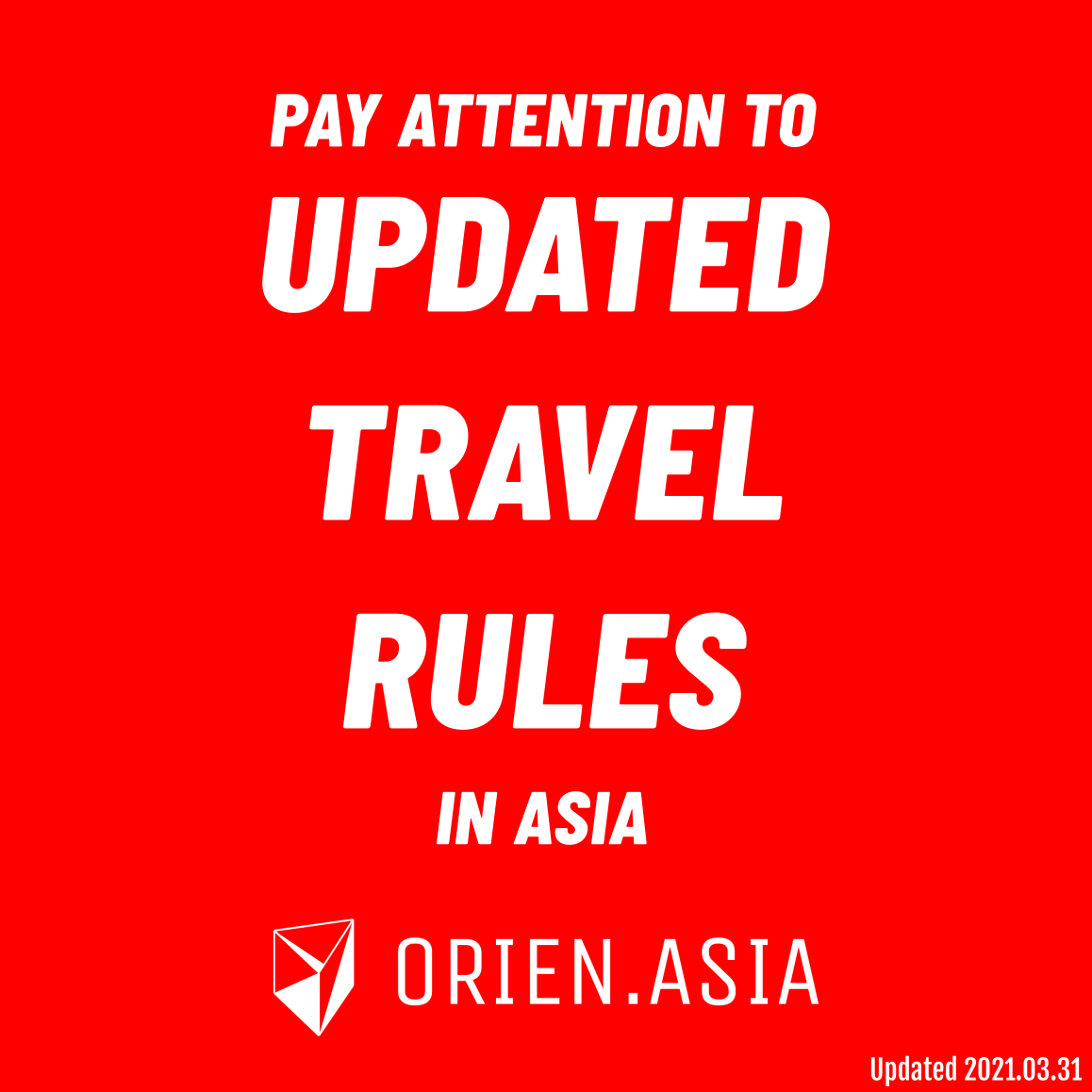It’s been more than a year since the start of the COVID-19 pandemic and vaccination has started in many countries. Asian countries like Thailand and Nepal, both beloved travel destinations, are already implementing loosened travel restrictions to attract tourists.
As we at ORIEN.ASIA have multiple upcoming events in Thailand and Nepal, among other countries, in autumn and winter 2021, this means you’ll be able to share the joy with us in these events.
The updated travel rules will depend on vaccination and PCR-tests to work, but most importantly, quarantine requirements will be gradually phased out, meaning that you’ll be able to travel to these countries again without lengthy stays. Learn more about these rules below.
Rules may change all the time. This article will be updated as soon as possible when new information becomes available. Please always recheck this article and consult other reliable sources.
Thailand
Update 29 April: All travellers (even vaccinated) will need to quarantine for the full 14 days from 6 May, due to the situation in Asia, until further notice. Applies also to anyone who got their Certificate of Entry from 1 May onwards.
Update 1 May: No outside leisure time is allowed during quarantine for the time being.
Update 28 April: Travellers from certain South Asian countries such as India will be required to quarantine for the full 14 days. More updates to the rules may follow in the rest of the week.
Being one of the most important tourist destinations in Asia, Thailand has been eager to restart international tourism. Even before the new travel rules are due to start in April, Thailand is already allowing foreign tourists to visit the country with a negative RT-PCR test result plus 14-day quarantine.

Update 1 April (not April Fools): if you’ve completed your vaccination 14 days ago or more, you can quarantine for just 7 days, see this document for details (also see below for where this applies).
Starting from 1 April, the quarantine period for most travellers is reduced to 10 days. For vaccinated travellers, the quarantine period is 7 days (updated 1 April), according to some announcements currently only for 5 pilot areas (Phuket, Krabi, Phang Nga, Chiang Mai, Pattaya).
Update 29 April: All travellers (even vaccinated) will need to quarantine for the full 14 days from 6 May, due to the situation in Asia, until further notice. See this report on the Thaiger. The 18:00 rule for calculating Day 0/Day 1 (see below) apparently still applies. As for the timetable for quarantine cessation for vaccinated travellers, there is no announcement yet and we assume for the meantime the schedule will go on as normal.
Updated 1 April: the cessation of quarantine requirements for vaccinated travellers are announced as follows:
- From 1 July: Phuket
- From 1 October: also Krabi, Phang Nga, Chiang Mai, Pattaya
- From 1 January 2022: all Thailand
You still need a negative RT-PCR test and apply for a Certificate of Entry online as before, but no longer a Fit-To-Fly certificate. To apply for a Certificate of Entry, you need confirmed flight and quarantine hotel bookings, as well as COVID-19 health insurance.
Travellers from certain designated countries with COVID-19 variants still need to quarantine for 14 days. The list will be updated every two weeks.
Note that your day of arrival is counted as Day 0 if you arrive after 18:00. If you arrive before 18:00, your day of arrival is counted as Day 1 and you’ll therefore quarantine for one night less. (Updated 11 April)
The conditions of quarantine are also loosened, and you’ll be allowed to get around the hotel within designated areas, even using hotel facilities such as gym and swimming pool. Ordering food from outside will also be allowed.
As for visa, you have a number of choices, including the Special Tourist Visa that will allow you to stay up to 90 days. If you don’t plan to stay for long, you can also opt for the resumed visa exemption with less paperwork.
Once quarantine is completed, you can go around in all Thailand and enjoy your trip. (Update 11 April: Provinces may implement quarantine requirements for people from certain other provinces with high COVID-19 incidence rate. For example, some provinces instituted quarantine requirements for people travelling from Bangkok in the wake of a new infection wave before Songkran 2021.)
Stay tuned to ORIEN.ASIA events in Thailand at orien.asia/thailand. We recommend also our Thailand orienteering thematic website at orienthailand.com
Nepal
28 April update: Due to the severe situation in South Asia, all travellers are now required to quarantine for 10 days, even if vaccinated for COVID-19. This measure will continue until further notice.
Nepal is a popular country for outdoor activities such as trekking and mountaineering. These activities provide much needed income for the country’s development.

New rules are in force from 29 March 2021. According to the new requirements, you need a negative RT-PCR test result or vaccination proof to enter Nepal, plus confirmed hotel booking and insurance. However, you still need to order a second test at your own cost after arrival (vaccinated or not). After that, there’s no further quarantine needed.
You need to apply for a visa online in advance, or alternatively a recommendation letter from the Nepal Tourism Board to get a visa on arrival.
You must also fill in the arrival and departure form online; airlines are obliged to check the receipt barcode of the form when you check in. (Updated 1 April)
Stay tuned to orien.asia/nepal for Himalayan Orienteering Championships and Training Camp, scheduled for 24 September to 3 October 2021.
Other Asian countries
There isn’t much news from other countries yet.
Singapore, for example, is going on a very cautious approach by adding countries to its safe travel list one by one. Travellers from these countries don’t need to quarantine.
The bottom line
You can always travel responsibly and safely by taking care of hygiene, and observe social distancing. Use face masks in public areas.
Many Asian countries have a lower COVID-19 infection rate than Europe and USA. Therefore, you don’t need to worry about getting the virus when travelling around Asia. In fact, with the SARS epidemic gone less than two decades ago, many Asians have heightened senses of hygiene and are using lessons learnt back then to guide themselves in this pandemic.
For the most part, travel restrictions are designed to err on the side of caution, taking no chances as to the risk of transmission. That means Asian countries are slow to reopen international travel as citizens are still waiting for signs of confidence regarding the end of pandemic. That also means you must keep your responsibility to avoid spread of disease, so that people are willing to welcome international travellers.
The world is here for you to explore, and with the pandemic in good prospect of ending with efficient vaccination programmes, you can get much more of your life by start planning your next adventure now.
Other than that, enjoy your trip, and join us in exploring more of Asia with orienteering!
Did you happen to read this through online search, but have no idea what orienteering is?
Since you’re reading this anyway, we’d like to invite you to try orienteering, an exciting outdoor sport (now even indoors) that combines navigation with speed and endurance.
Orienteering is a navigation sport where you use compass and map to navigate between checkpoints. Traditionally played in forests, orienteering in cities has come into fashion since the early 21st century. Indoor orienteering has also become a prominent feature of today’s orienteering landscape, with events in schools and shopping malls.
Originating from Scandinavia in the late 19th century, the sport has spread to all over the world. Orienteering has established itself in East Asia for around half a century, with China and Japan competing regularly in international elite events. In Southeast and South Asia, the sport has recently seen rapid growth, with more and more countries starting national teams and organising international events.
As a navigation sport possible on any form of transport, orienteering interacts with other sports such as road, trail and off-trail running, mountain bike, and cross-country skiing. It also bears many similarities with other activities such as treasure hunt and geocaching, as well as being an established scoutcraft.
Orienteering as an outdoor activity is a gateway to enjoying and appreciating nature, which explains its appeal with countries of natural beauty like Thailand and Nepal.
We established ORIEN.ASIA with an aim to promote orienteering in Asian countries. We organise international events in countries and regions such as Hong Kong, Thailand, Malaysia, Singapore, Nepal, and Indonesia, with race series such as #AsiaCityRace and Landrunning World Series, and national event titles such as Thailand International Orienteering Championship, Himalayan Orienteering Championships (Nepal), and Tropical Orienteering Week (Malaysia).
Learning orienteering is easy: you need to get into a habit of finding your best way to get anywhere you want. Beyond that, it’s mostly speed, endurance, some navigation techniques, and a sound mind.
Welcome to the world of orienteering!


